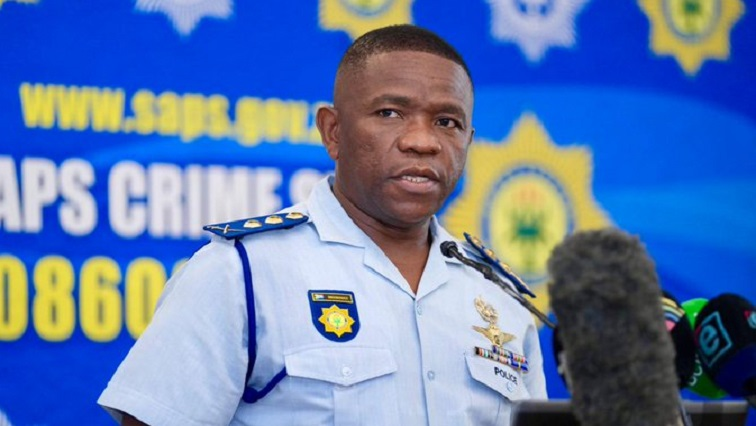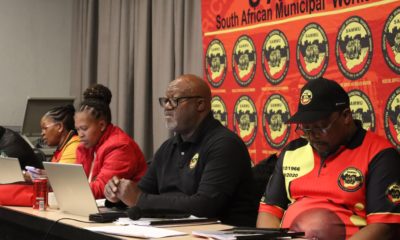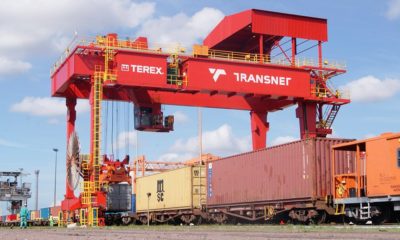News
“Workers Are Not the Problem”: Unions Push Back Against Mkhwanazi’s Wage Comments

A heated row has erupted between KwaZulu-Natal Police Commissioner Lieutenant General Nhlanhla Mkhwanazi and some of the country’s biggest trade unions, after the commissioner suggested that union wage demands are partly to blame for South Africa’s shrinking government workforce.
Mkhwanazi made the remarks this week in uMlazi during a stakeholder engagement with Premier Thami Ntuli, where he argued that higher salary demands had left the state with less room to hire much-needed staffparticularly police officers. In his view, labour laws and wage negotiations have created unintended consequences, tying the government’s hands when it comes to boosting staffing levels.
But unions aren’t buying it.
“Misplaced and out of context”
Cosatu KZN provincial secretary Edwin Mkhize described the commissioner’s comments as not only “misplaced” but dangerous, saying they risk driving a wedge between workers and law enforcement leadership at a time when collaboration is critical in the fight against violent crime.
Mkhize argued that South Africa’s staffing crisis has little to do with salaries and everything to do with austerity budgets and economic policy choices:
“The crisis of inadequate staffing is not the making of workers or their unions. It is the result of neoliberal austerity measures forced onto government by capitalist interests and credit rating agencies. Workers are not the problem; structural inequality and wasteful expenditure at the top are.”
Cosatu also pointed out that the share of national income going to labour has been shrinking for decades, while business profits have surgedmaking it difficult to argue that workers are “too expensive.”
FEDUSA: “Stop scapegoating workers”
The Federation of Unions of South Africa (FEDUSA) echoed this rejection, calling Mkhwanazi’s claims “misleading.” In a strongly worded statement, FEDUSA pointed instead to poor governance, corruption, collapsing infrastructure, load shedding, and years of austerity as the real culprits behind South Africa’s unemployment and service delivery crises.
“To blame unions is to mislead the public and shift attention away from government’s failures,” the federation said.
For FEDUSA, the issue in the police service is not wages, but frozen posts and chronic underfunding, which have left thousands of vacancies unfilled despite rising crime levels.
IPUSA: “Our members are not the problem”
The Independent Policing Union of South Africa (IPUSA) was equally firm, calling Mkhwanazi’s comments dismissive of the real challenges within SAPS. The union pointed to corruption, political interference, and a lack of investment in essential services as the real reasons behind staff shortages.
“Workers’ rights to fair wages, safe conditions, and dignified treatment are not obstacles, they are the pillars of a functional labour system,” IPUSA said.
IPUSA concluded that SAPS leadership should stop pointing fingers at unions and instead focus on restoring integrity, accountability, and trust in the police system.
On social media, reactions to Mkhwanazi’s comments have been split. Some users sympathised with his frustrations over an overstretched police force, while others accused him of deflecting attention from government mismanagement.
Labour analysts note that the commissioner’s remarks reflect a broader tension in South Africa’s public sector: a state under pressure to contain spending while still facing sky-high unemployment and service delivery failures. Yet, critics argue that targeting wage demands oversimplifies a far more complex web of problems, from austerity budgets to corruption scandals.
What’s clear is that the debate has struck a nerve. With crime levels rising and police stretched thin, the conversation about how to balance fair wages, job creation, and proper resourcing of critical services is far from over.
Unions have made one thing clear, workers are not to blame for the staffing crisis. Until government addresses structural issues like underfunding, frozen posts, and corruption, scapegoating wages may do little more than fuel mistrust between police leadership and the very workers keeping the system afloat.
{Source: IOL}
Follow Joburg ETC on Facebook, Twitter , TikTok and Instagram
For more News in Johannesburg, visit joburgetc.com























